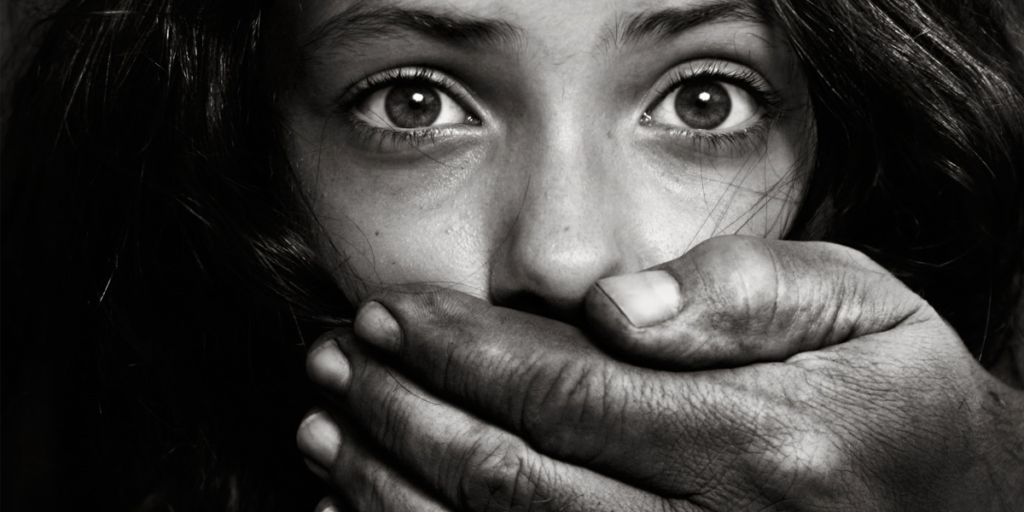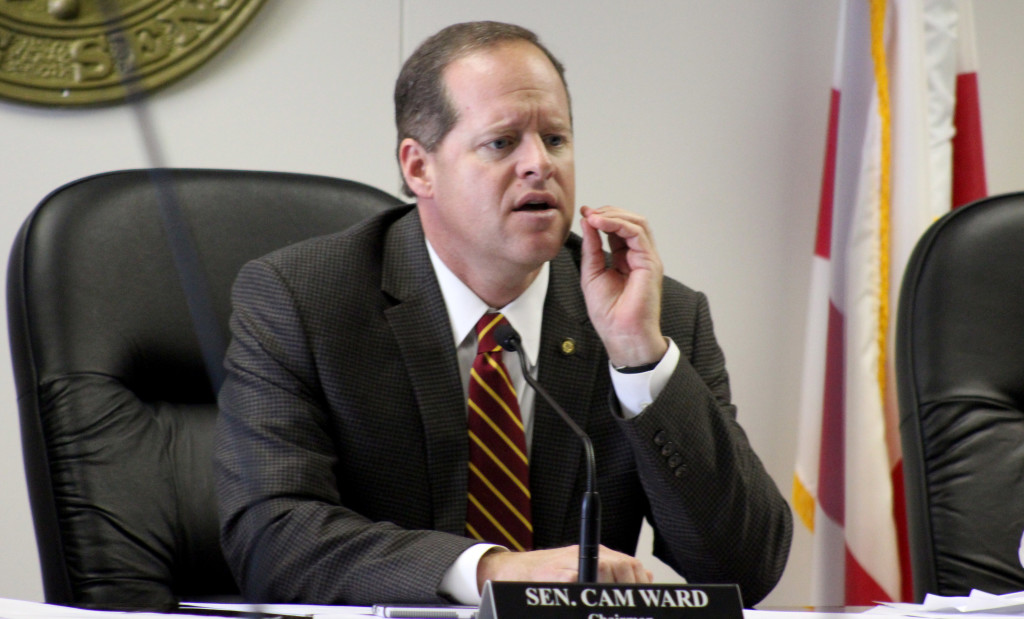Alabama Senate increases penalties for child sex traffickers

As Human Trafficking Awareness Month comes to a close, Alabama lawmakers passed a bill on Tuesday to making a lasting impact in the efforts to stop the horrific and barbaric exploitation. The Alabama State Senate unanimously passed a bill Tuesday that enhances the criminal penalties for those found guilty obstructing the enforcement of the human trafficking laws in Alabama. Sponsored by Alabaster-Republican state Sen. Cam Ward, SB179, is part of the Senate Republicans’ “Fighting for Alabama” 2018 agenda. “This issue is truly one of the most horrific blights on our society, and tragically, most often the victims are children,” Ward said. “Increasing penalties for those who would aid traffickers is a crucial step in ending this monstrous practice. This bill will hold them just as accountable as the traffickers themselves.” The bill would enhance the penalties already in place, increasing the offense to a Class A felony, with a minimum jail sentence of ten years. Under current law, the obstruction of an investigation into child trafficking is only a Class C felony – meaning conviction could result in merely one year in prison. According to the Alabama Human Trafficking Task Force, the average age of sex trafficking victims is between 11-14 years old. It is estimated that two children are trafficked into sexual exploitation every minute. “There is nothing more important than protecting the most vulnerable members of our communities, our children,” Ward added. “We want to give law enforcement every tool they need to ensure no child is ever harmed in this manner.” While many Alabamians are unaware of its ongoings, sex trafficking is actively happening not only abroad, but also in Alabama. According to the National Human Trafficking Hotline at least 36 human trafficking cases were reported in the Yellowhammer State in 2017. They also report more than 111 victims of human trafficking in Alabama have called its hotline for help this year.
Cam Ward introduces bill to increase penalties for human trafficking

An Alabama state senator introduced a bill on Tuesday to enhance the criminal penalties for obstructing the enforcement of the human trafficking laws in Alabama. Alabaster-Republican State Sen. Cam Ward introduced SB179, which was cosponsored by Tom Whatley (R-Auburn) and Gerald Dial (R-Lineville). According to the Federal Bureau of Investigation (FBI), human trafficking is believed to be the third-largest criminal activity in the world. “It is a form of human slavery which must be addressed at the interagency level. Human trafficking includes forced labor, domestic servitude, and commercial sex trafficking.” “This awful crime preys predominately on children,” Ward tweeted of the bill on Wednesday. While many Alabamians are unaware of its ongoings, sex trafficking is actively happening not only abroad, but also in Alabama. According to the National Human Trafficking Hotline at least 36 human trafficking cases were reported in the Yellowhammer State in 2017. They also report more than 111 victims of human trafficking in Alabama have called its hotline for help this year. In fact, the stretch of I-20 between Atlanta and Birmingham is known as the Sex Trafficking Superhighway. “It cuts right there through downtown Birmingham, and what we’re finding, unfortunately with the interstate system that you and I use to get from Birmingham to Montgomery — is that people are using it to bring in girls, for example, for a short period of time. Buyers are available, and then they leave,” David Pinkleton, fundraising chair for the Alabama Human Trafficking Task Force told CBS 42 last year. Under existing law, human trafficking is a crime. Additionally, obstruction of the enforcement of the laws criminalizing human trafficking is a crime. Under the proposed law, a person commits the crime of human trafficking in the first degree if: He or she knowingly subjects another person to labor servitude or sexual servitude through use of coercion or deception. He or she knowingly obtains, recruits, entices, solicits, induces, threatens, isolates, harbors, holds, restrains, transports, provides, or maintains any minor for the purpose of causing a minor to engage in sexual servitude. For purposes of this section, it is not required that the defendant have knowledge of a minor victim’s age, nor is reasonable mistake of age a defense to liability under this section. A corporation, or any other legal entity other than an individual, may be prosecuted for human trafficking in the first degree for an act or omission only if an agent of the corporation or entity performs the conduct which is an element of the crime while acting within the scope of his or her office or employment and on behalf of the corporation or entity, and the commission of the crime was either authorized, requested, commanded, performed, or within the scope of the person’s employment on behalf of the corporation or entity or constituted a pattern of conduct that an agent of the corporation or entity knew or should have known was occurring. Any person who obstructs, or attempts to obstruct, or in any way interferes with or prevents the enforcement of this section shall be guilty of a Class A felony. Human trafficking in the first degree would be a Class A felony. Under the bill if a person commits the crime of human trafficking in the second degree if: A person knowingly benefits, financially or by receiving anything of value, from participation in a venture or engagement for the purpose of sexual servitude or labor servitude. A person knowingly recruits, entices, solicits, induces, harbors, transports, holds, restrains, provides, maintains, subjects, or obtains by any means another person for the purpose of labor servitude or sexual servitude. A corporation, or any other legal entity other than an individual, may be prosecuted for human trafficking in the second degree for an act or omission only if an agent of the corporation or entity performs the conduct which is an element of the crime while acting within the scope of his or her office or employment and on behalf of the corporation or entity, and the commission of the crime was either authorized, requested, commanded, performed, or within the scope of the person’s employment on behalf of the corporation or entity or constituted a pattern of conduct that an agent of the corporation or entity knew or should have known was occurring. Any person who obstructs, or attempts to obstruct, or in any way interferes with or prevents the enforcement of this section shall be guilty of a Class B felony. Rainbow City-Republican State Representative Mack Butler is expected to sponsor a similar bill in the House.
Bills to increase porn penalties pass Senate Judiciary Committee

Two bills aimed at stemming the flow of pornographic material passed the Senate Judiciary Committee Wednesday. One, providing further penalties for people disseminating explicit photos of persons under 17 and the other tackling the issue of “revenge porn” as used to harass a former partner. Ward’s SB179 that a person found guilty of transmitting or possessing pornographic photos of a minor must register as a sex offender. The bill removes the current requirement that the transmission require a monetary exchange to be a punishable offense and includes “breast nudity” as a possible offense. SB342 from Sen. Vivian Figures (D-Mobile) makes it a Class A felony to unknowingly film a sexual partner and display such recordings online or otherwise. Figures noted that the bill was brought to address “revenge porn,” which has gained popularity with the advent of mass social media use.
Senate committee greenlights Ten Commandments for display on school, state property

With little discussion, the Senate Judiciary Committee gave a favorable report to SB97 from Sen. Gerald Dial (R-Lineville) allowing the Ten Commandments to be displayed on state property and at public schools. Committee chairman Sen. Cam Ward (R-Alabaster) noted that the bill has passed out of committee several times over the years and always stalls in one of the legislative bodies. Sen. Linda Coleman-Madison (D-Fairfield) lodged the only opposition to the bill. “Whatever happened to the separation of church and state?” she questioned. Despite the limited opposition, the bill was OK’d within seconds of being brought up.

